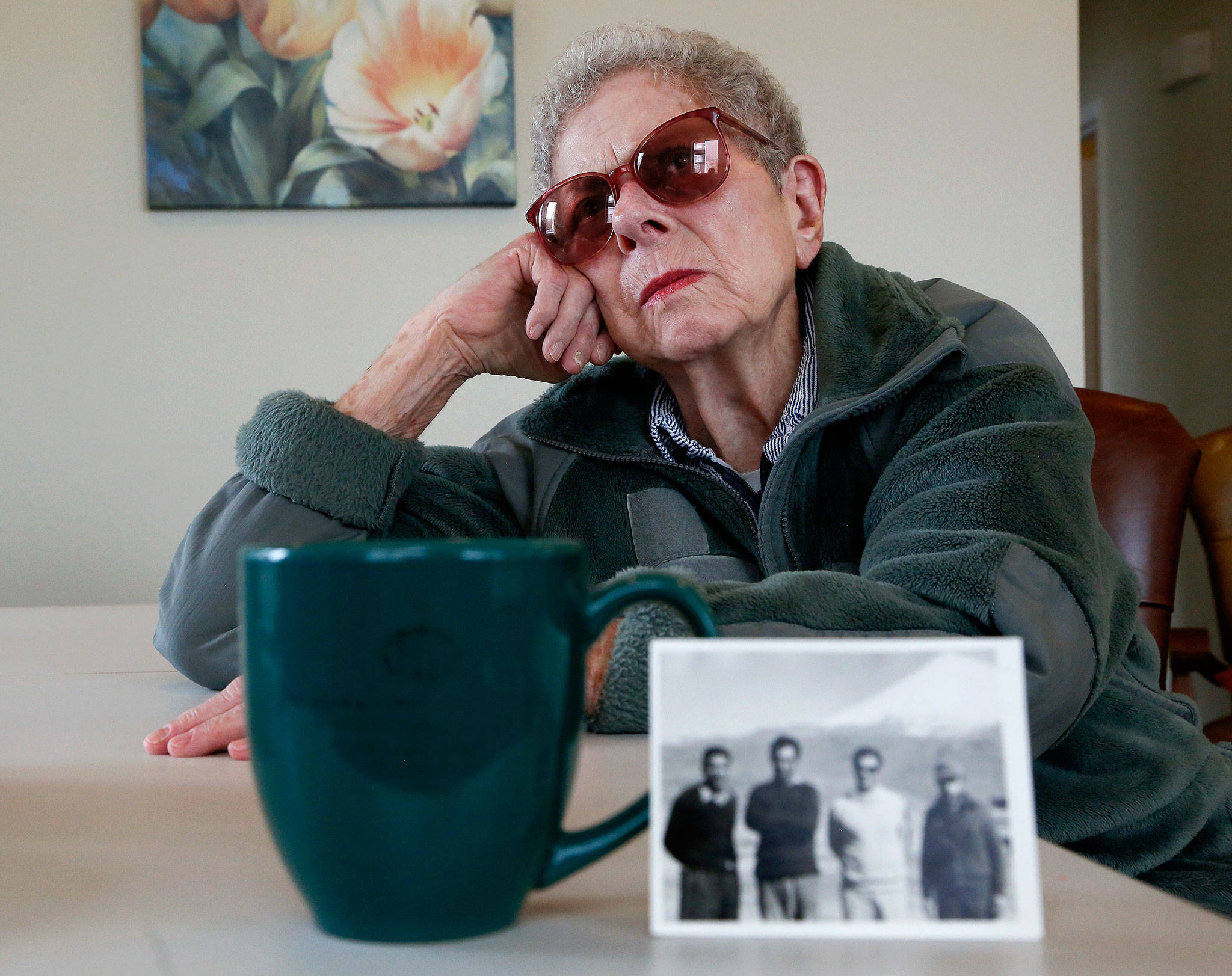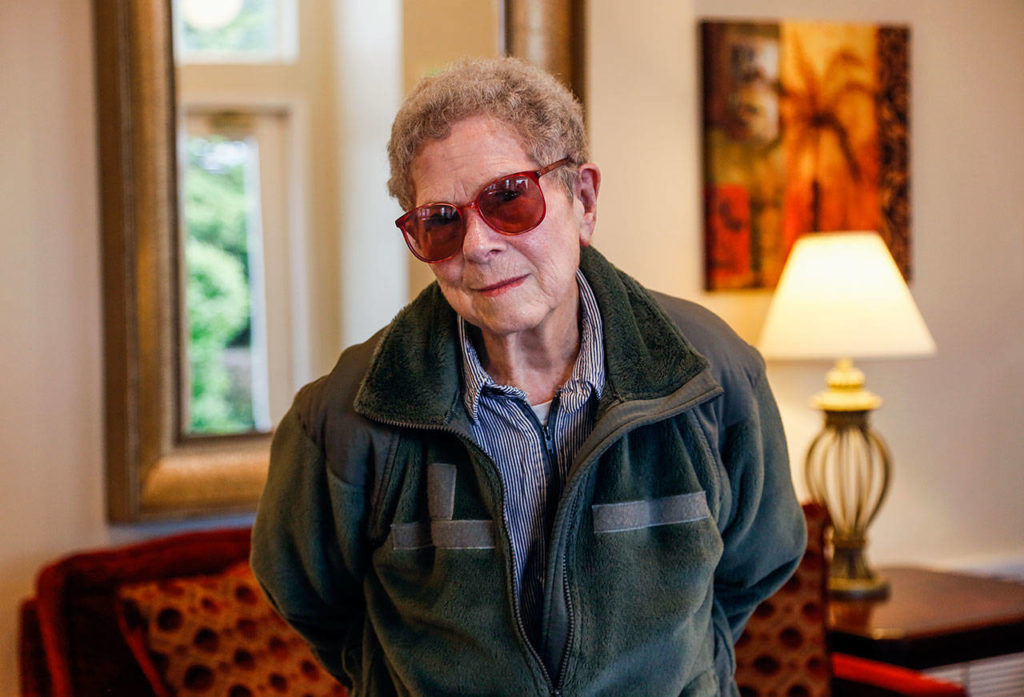After 53 years, Doris Sinclair hasn’t shaken her memories of barbed wire, dogs and Soviet interrogators, or of the fear that she might not see her family again.
And after 53 years, the Everett woman said Monday that those chilling memories of a Cold War-era incident are being strengthened by today’s political climate. In the spring of 1964, Sinclair said, she was detained by Soviet guards and questioned for three days.
We’re now seeing news of a House Intelligence Committee investigation into Russian meddling in the 2016 presidential election. President Donald Trump has been called an admirer of Vladimir Putin, Russia’s leader. And there are headlines about the FBI looking into possible links between a Trump campaign adviser, Carter Page, and Russian agents.
“People who support Trump may not recognize how dangerous playing with Russia is,” said Sinclair, 88, who lived in Iran with her husband from 1963 to 1968.
Richard “Dick” Sinclair, who died in 2015, was in the U.S. Air Force when the couple lived in Iran with their two children. It was during the U.S.-backed rule of the Shah of Iran, Mohammed Reza Pahlavi. For six months before going to Iran, Dick Sinclair had been a base commander in Libya.
According to his widow, he was involved in intelligence-gathering for the United States while in Iran. There was a site outside Tehran, she said, where drilling was done “to monitor any nuclear activity by the Russians.”
What she said happened to her while on a train trip in 1964 will forever color how Sinclair views the Russian government.
Her brother, a doctor, had drowned in Samoa, where he worked in a cardiac hospital. After he died, Sinclair’s sister-in-law planned a trip to Tbilisi, in what was then Soviet Georgia. Sinclair decided to go by overnight train, from Tehran to Georgia, to see her sister-in-law, who was with her two young children.
The Sinclairs’ own son and daughter were in school in Iran. Doris Sinclair, a California native who met her husband while they were students at the University of Wyoming, was taking the more than 1,000-mile trip alone.
She described a nightmarish scene on the train after it crossed from Iran into what in 1964 was the Armenian Soviet Socialist Republic. The train crossed Armenia, north of Iran, on its route to Georgia. At the Iranian-Armenian border, Sinclair said she saw “barbed wire after barbed wire — I can’t tell you how ominous that was.”
The train stopped, she said, and Soviet guards came aboard with “the most vicious dogs.” Traveling in her train car was an Armenian man. “There was a terrible food shortage in Armenia, and he was taking food to his relatives,” she recalled. He was allowed off the train to meet his family, but not before the head guard ate much of the man’s food and “deliberately and sadistically” destroyed the rest, Sinclair said.
She said she had letters in her suitcase from her sister-in-law. They had been stamped with reminders to use a ZIP code, and Sinclair said guards fixated on the word “code.”
“They arrested me on the spot,” Sinclair said. “Four men came on the train and grabbed me by the arms.”
She said she was marched into a compound. For three days and nights, she said she was questioned. Over and over, she said, the questions were the same: What does your husband do? What do you know? Why are you going to Soviet Georgia? Sinclair described “the honchos,” who spoke enough English to question her, as frightening but also naive.
“They were convinced I was not only Dick’s wife, but I was a spy,” Sinclair said. “I didn’t know anything.”
She was given food and allowed to go to the bathroom, but recalled being pushed around. A dog was sometimes in the room where she was questioned, she said. There was no way to contact her husband or sister-in-law.
After three days, she was let back on a train to Tbilisi. Guards, though, put a man she called “a minder” on the train with her. She eventually made it to the Tbilisi hotel where her sister-in-law had waited. In all, she was gone from Iran two weeks. To get back, Sinclair skipped the border crossing where she’d found trouble, and arranged a different route to Iran that included a leg by boat across the Caspian Sea.
Although there’s no way to verify her recollections, they don’t seem implausible for a time when U.S.-Soviet superpower rivalry was at its most tense.
During my 1960s school years, kids were subjected to duck-and-cover drills that were supposed to help us survive a nuclear blast. Four months before I was born in 1953, the American couple Julius and Ethel Rosenberg were sent to the electric chair for conspiracy to commit espionage for the Soviet Union.
In the Trump era, Sinclair senses echoes of the Cold War. She’ll never forget experiencing it for herself.
Julie Muhlstein: 425-339-3460; jmuhlstein @heraldnet.com.
Talk to us
> Give us your news tips.
> Send us a letter to the editor.
> More Herald contact information.


























